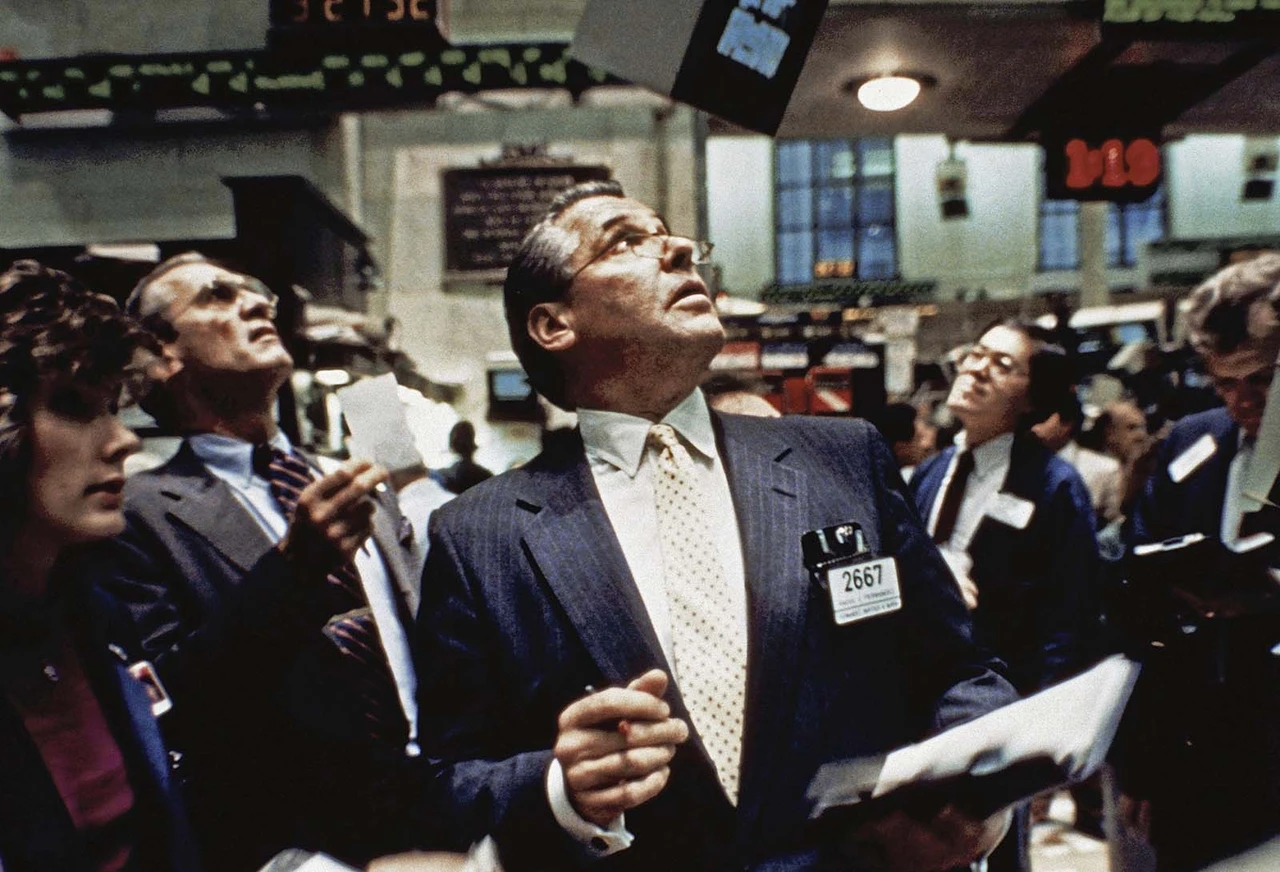Japan’s Nikkei faces worst loss since Black Monday of 1987
 Traders on the floor of the New York Stock Exchange watch monitors for transactions on Black Monday Oct. 20, 1987
Traders on the floor of the New York Stock Exchange watch monitors for transactions on Black Monday Oct. 20, 1987
Japan’s Nikkei 225 index experienced a dramatic 12.4% decline Monday, marking its worst single-day loss since the infamous “Black Monday” of 1987.
This drop, driven by fears over the U.S. economy’s health, has sent shockwaves across Asian markets.
Why it matters: The steep decline highlights the ripple effect of U.S. economic concerns on global markets, as investors brace for potential recession impacts.
- Concerns about the U.S. economy’s strength have prompted widespread selling, especially after a weak jobs report and expectations of aggressive Federal Reserve interest rate cuts.
Breaking down numbers
The index has not faced such a steep single-day drop since a 14.9% decline in October 1987 and 11.4% in October 2008 during the global financial crisis.
- Nikkei’s plunge: The Nikkei index fell 4,451.28 points to close at 31,458.42, logging an 18.2% drop over the last two trading sessions. This is the worst two-day decline in its history.
- Sector hits: Major companies like Toyota, Honda, Tokyo Electron and Mitsubishi UFJ Financial Group saw significant losses, with shares dropping between 11% and 18.4%.
Economic concerns
- U.S. economy worries: Fears that the U.S. economy might be heading toward a recession sparked the sell-off, following a disappointing jobs report showing only 114,000 new jobs added in the U.S. last month.
- Impact on dollar: The weak U.S. economic data has weakened the dollar, boosting the yen and further impacting Japan’s export-driven economy.
- Tech sector’s role: Weak earnings from tech giants like Amazon and Microsoft in the U.S. have compounded concerns, further impacting global markets.
- Fed’s rate moves: Investors are now speculating that the Federal Reserve may implement significant rate cuts, further affecting global financial dynamics.
Government response: Japan’s Chief Cabinet Secretary Yoshimasa Hayashi emphasized the government’s focus on breaking free from deflation and transitioning to a growth-driven economy amid the market turmoil.
Regional reactions
- Asia’s market fallout: The Nikkei’s fall set off a chain reaction in Asia, with Taiwan’s benchmark plummeting 7.9% and South Korea’s market dropping more than 5% –their worst since the onset of the COVID-19 pandemic in March 2020.
- Southeast Asia’s struggle: Singapore, Indonesia and the Philippines also faced significant declines, with Singapore’s benchmark marking its worst day in over two years.
Analyst insights
- Currency concerns: “The stronger yen will also weigh on the Nikkei as corporate margins fall,” noted Ryota Abe, an economist at SMBC in Singapore. The yen’s rapid rise has surprised many and impacted corporate profits.
- Market stability: Seiichi Suzuki from Tokai Tokyo Intelligence Laboratory suggests that while the market may remain unstable till October, buying opportunities may arise, as fundamental growth factors have not changed.



